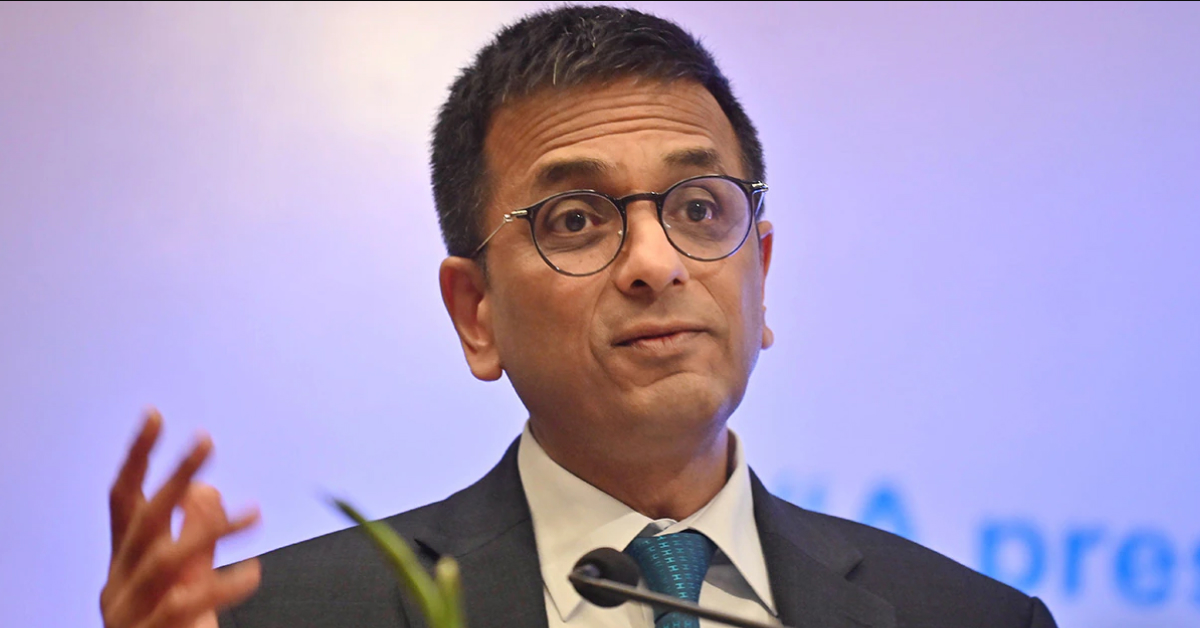Chief Justice of India on Arbitration in London
Chief Justice of India (CJI), DY Chandrachud has travelled to the United Kingdom and delivered a speech on ‘’Arbitration Institutions Should Not Be Controlled By Self-Perpetuating Cliques’’. CJI stated that India should focus on and promote the culture of arbitration. In recent years, the International Arbitration Centre was established with a registered office at Gurugram and other strategically located offices in New Delhi, Mumbai and Bengaluru and are seeing the continuous stream of arbitration matters. While delivering the speech, Justice DY Chandrachud said establishing only institution for arbitration to resolve disputes is not sufficient, it has to be guaranteed that every voice is heard and valued, these new institutions should not be controlled by a small group of people who keep themselves in power or maintain their control by continuing to include only their own members and not allowing outsiders to join. This group makes sure that it stays in charge by only selecting new members from within its own circle.
DY Chandrachud stated that transparency and accountability are the most important ingredients in the Arbitration process, whosoever is involved in this process should have the same information so that it keeps all the things fair which is included in this process. Through fairness, people will trust the process and will accept the decision easily even if they don’t like the decision. This fairness also makes the arbitration process more legit and trustworthy. Transparency also helps to prevent biases, which commonly come when the disputes are being resolved; if biases come in the process of arbitration, both the parties that are included in this process will not be happy with the final results. Through transparency and accountability, the awards are more likely to be enforced by courts, which is really important for making sure the whole process works. Overall, transparency and accountability make arbitration better for everyone involved.
He stated that all the arbitration institutions situated around the world are likely to cooperate with each other for the smooth functioning of the process and to adopt the best international practices and procedures. Justice DY Chandrachud also said that even though an arbitrator might not always accurately judge how a witness is behaving, it's still really important for the process. Solving a dispute is quite challenging for the arbitrator is not just like the formula of mathematics, where you just have to put the numbers in the formula and the answer will come out, it needs the human touch to get it right to understand what both the parties are saying and the main thing to understand is the core of the dispute to come up with a fair solution. As we all know, most people don’t know about the Arbitration and Conciliation Act, so he said as soon as technology advances in the future maybe people will start seeing this differently.
PrivateCourt Delivering Fair, Transparent, and Accountable Dispute Resolution Services
PrivateCourt, as a Conciliation and Arbitration firm, follows the fairness, transparency, and accountability process. The main objective of PrivateCourt is to arrive at a fair resolution in an unbiased manner speedily and cost-effectively. It includes that whosoever is involved in this process should be treated equitably and that the process is conducted with integrity. PrivateCourt believes that transparency only works when clear communication of procedures and information allows all parties to understand the process and participate. Accountability ensures that decisions are made responsibly and in accordance with established rules and standards, holding all parties to their commitments and obligations. By adhering to these principles, PrivateCourt establishes a framework for trust and confidence in the resolution process, fostering an environment conducive to reaching fair and just outcomes.
The primary objective of PrivateCourt is to facilitate the timely and cost-effective resolution of disputes while maintaining impartiality and fairness. By prioritising efficiency, PrivateCourt aims to streamline the resolution process, minimising delays and unnecessary expenses for all parties involved. Through its unbiased approach, PrivateCourt seeks to arrive at resolutions that are acceptable and satisfactory to all parties, avoiding prolonged litigation and preserving valuable resources.
keywords: arbitration and conciliation act 1996, CJI on arbitration in london, unstamped arbitration agreement, section 29a arbitration act, arbitration bar of india, cji statement on arbitartion , arbitration event in London

